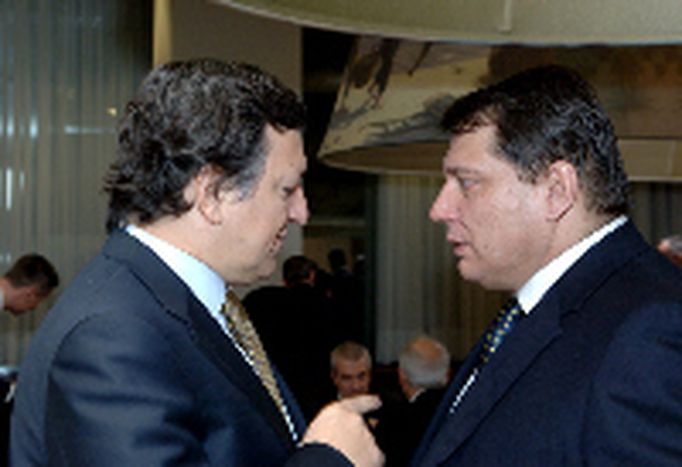
Election time in the Czech Republic
Published on
Translation by:
 eleanor forshaw
eleanor forshaw
On the 2 and 3 June, tens of thousands of Czech voters will be called upon to cast their votes. The political challenge will be to leave corruption behind and consolidate the position of Prague within the European Union
The state of the country ahead of the elections is promising. The economy has been growing at about 6% per year, the inflation rate is stable, unemployment is falling and exports have markedly increased thanks to the boost offered by entry into the EU. But widespread corruption and economic depression in rural areas add a black lining to the optimist's cloud, and they are the hot topics of the electoral campaign.
The social democrats’ project to stay in power
The Social Democratic party (CSSD), currently in power, promises to reduce unemployment to 6% (currently close to 8%), by creating 150,000 jobs. The party also wants to increase pensions by 25%, even though the vagueness about how they will do so displeases certain critics. However, it is difficult to reconcile this objective with engagements they have made in other areas, such as their proposed investment in roads and motorways, and their intended reform of the shaky health system. These projects are deemed necessary to consolidate the position of the Czech Republic in Europe. Lastly, the CSSD wants to set aside 3% of its GDP for investment in research and development over the next four years.
Regaining the trust of the people after the debacle of the European election of 2004 – where they gained only two seats against the nine seats obtained by the Civic Democratic Party (ODS) – will not be easy. However, Prime Minister Jiri Paroubek is a man used to managing crises. Previously a leading economist for floundering public enterprises under the communist regime, Jiri Paroubek came to power in 2004 after the corruption accusations that swallowed his predecessor Stanislav Gross. From then on, Paroubek has led his party in an aggressive electoral campaign, gaining the title “the bulldozer of politics” in the process. Not even the president of the Republic and founder of the rival party ODS, Vaclav Klaus, was spared, accused in many instances of interfering in the management of the cabinet. It comes as no surprise then that the CSSD proposes a general election for the office of President, a decision which currently lies with Parliament.
The president’s men are challengers of the ODdS
Klaus does not seem to be interested in toning down the polemic. He is known for taking up conservative positions, as he did when he vetoed the rights of homosexual couples. That decision was then overturned by the Parliament. The self-proclaimed Eurosceptic also states that “it is not possible to have democratic responsibility in something bigger than a nation,” an attitude that encourages the nationalism that developed under the influence of Moscow.
But Klaus, more so than the candidate for Prime Minister, Mirek Topolanek, could pull the right into power. Indeed, whilst Topolanek has less votes that Paroubek in the polls (21% against 25%), the President enjoys a popularity of around 75%. It is difficult to say if Topolanek will ride into power with the euroscepticism of the president. Most likely, ODS is conscious of the fact that the Czech people, despite their fondness for Klaus, looks to Europe with hope. Topolanek’s hostility is more marked towards the communist party, with which the Social-Democratic party has had to make compromises. It is a position that brings ODS closer to the central Christian-Democratic party (KDU-CSL) and makes a government coalition more likely.
The pre-electoral tension is mounting, but the programmes of both parties appear to be similar. Ods proposes an increase in pensions and a war on corruption, with the possibility of more radical cuts in income taxes (maybe a single fixed rate set at 15%).
The Greens and the Communists, the small parties are growing
Anti-communist messages still have an effect on Czech society, and the communists today appear to have been stamped with the ghosts of the past. Their success rate in the polls, close to 15%, which is the result of a strong ideological reform, could be decisive in the formation of a possible centre-left government. The same goes for the Greens, the big outsiders in this election. If the results of the polls are confirmed (10%), the Greens in the Czech Republic would become the strongest environmentalist group in the new member states.
Whoever wins, the alliance-making games will be essential to determine the new majority and could help Czech politics leave corruption and unpopularity behind.
Translated from Repubblica Ceca, tempo di elezioni


